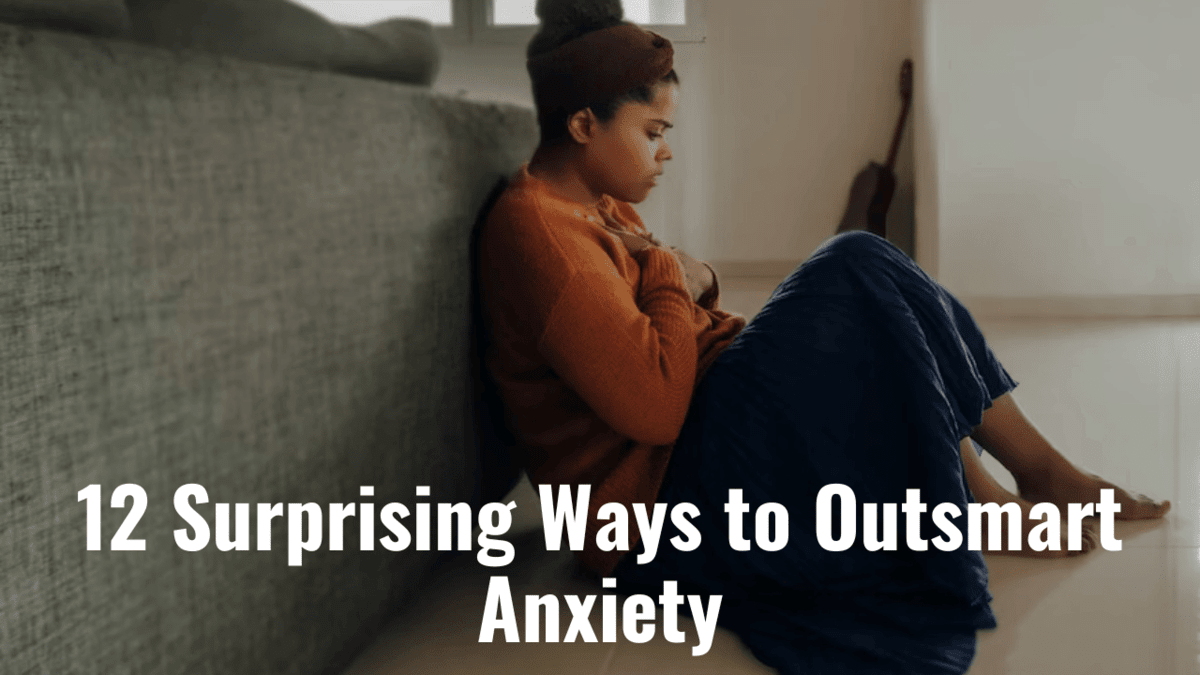A therapist recommends what to do if anxiety starts to affect your work.
Outsmart Anxiety and depression are among the top four most common causes of absence from work, accounting for approximately 17.6 million sick days, or 12.7% of all sick days taken in the UK, according to research.
One in six workers in the UK is thought to suffer from mental health issues, and anxiety is one of the most common conditions among employees who are under pressure or overworked. Anxiety can hurt your career prospects and your mental health if left unchecked. It can cause you to avoid certain situations, affect your confidence, and lower your goals.
We look at how anxiety in the workplace may be affecting you and what you can do about it if you are experiencing anxiety affecting you at home and work Outsmart Anxiety.
What is occupational anxiety?
Working environment nervousness alludes to the tension that emerges when we’re at or pondering work. It can occur in response to any circumstance that causes you to worry excessively or to fear a negative outcome, such as a disagreement with a coworker, an intimidating boss, a workload that is too much for you to handle, or the fear of making mistakes that could lead to something terrible.
If you are working with difficult personalities, if you have high levels of responsibility with limited support, if you have a workload that is impossible to complete in the time you have available, or if there are no clear expectations placed on you, you are more likely to experience workplace anxiety.
Also, Check The Energy Drain: Demystifying the 14 Medical Factors That Leave You Exhausted Nonstop
We all experience anxiety from time to time, and it is a normal emotion. It makes us aware of genuine or seen risks and assists us with perceiving when danger is available. However, it may be time to take action if you are experiencing persistent or excessive anxiety that affects your ability to perform your job duties, mental or physical health, and ability to enjoy and manage your personal life Outsmart Anxiety.

The most effective method to tell you’re encountering work environment uneasiness
Assuming you are now and again encountering any side effects of uneasiness while at work or pondering work, you may be encountering working environment nervousness. The absolute most normal side effects include:
- A significant inclination to evade work.
- The ability to disengage from specific tasks or the inability to mentally switch off are common cognitive states that individuals may experience.
- Sleeping difficulties are a common issue that individuals may experience. This condition is characterized by the inability to fall asleep or stay asleep for an adequate amount of time. It can be caused by various factors such as stress, anxiety, medical conditions, or environmental factors. People who experience sleeping difficulties may feel tired, irritable, and have difficulty concentrating during the day. It is important to seek medical advice if sleeping difficulties persist, as they can lead to serious health problems.
- Experiencing irritability or a tendency to become easily frustrated.
- The act of intentionally refraining from interacting with friends and family members.
- Experiencing fatigue, decreased mood, and lack of drive.
- The individual is experiencing challenges in maintaining focus and attention.
- Excessive checking of work
- Experiencing symptoms of illness or gastrointestinal discomfort.
- The individual experiences frequent occurrences of muscle aches and tension.
- Experiencing a sense of agitation and unease.
- Individuals may experience panic attacks or a sense of apprehension.
Proceeded with working environment tension might dissolve your certainty after some time, making you overlook your assets at work so you centre just around your limits and underrate your capacity to adapt to hardships if they somehow manage to emerge Outsmart Anxiety.
If you procrastinate or become easily distracted, or cannot make decisions for fear of making “the wrong” one, this can also affect your productivity at work.
You might also notice that you worry a lot about certain work-related tasks or situations and only think about the worst-case scenario. In severe cases, you might find that you can’t get away from work, worrying about results, deadlines, tasks, and potential conflicts even when you’re not at work Outsmart Anxiety.
How to deal with anxiety in the workplace
If you are experiencing anxiety in the workplace, the following actions, which you can take both at work and outside of it, can help you relax:
1. Discuss your anxiety
Assuming you feel that there are individual elements which are expanding your uneasiness, for example, irrational cutoff times, an unmanageable responsibility or an organizational culture which doesn’t empower going on vacation, make a rundown of these issues and timetable chance to address a supervisor to address your interests Outsmart Anxiety.
It can be a great relief to talk about your anxiety and how you’ve felt with friends, family, a therapist, or your doctor. It can assist you with offloading, disengaging from your experience and seeing your troubles according to another point of view. If you don’t have anybody you feel open to conversing with, you can call a helpline like the Samaritans Outsmart Anxiety.
Also, Check The Peanut Allergy Epidemic: How Scientists Are Fighting Back to Protect Our Kids
2. Learn techniques for managing anxiety

Turning out to be more mindful of the variables that are adding to your uneasiness can assist you with figuring out how to deal with these troublesome sentiments. Making a note of the particular triggers of your uneasiness and the particular considerations you have when you feel restless can help Outsmart Anxiety.
Research has shown that it isn’t things or circumstances that cause us to feel sad or restless but how we contemplate them. Anxiety can be reduced by ensuring that your thoughts are fair and realistic toward yourself and others, that you don’t set unreasonable goals, and that you don’t take responsibility for things you can’t control Outsmart Anxiety.
3. Keep your boundaries
Maintaining a work-life balance and prioritising your free time is crucial if you suffer from anxiety. You may be working longer hours and taking longer to complete tasks due to your anxiety. Maintaining boundaries, such as arriving and departing work on time and taking a daily lunch break, will not only assist you in managing your anxiety but will also improve your overall efficiency in the long run. This can exacerbate your feelings of stress and anxiety in the long run Outsmart Anxiety.
4. Respect your rights.
Be aware of the specific regulations your company must adhere to if your boss is not sympathetic. If you think these aren’t being met, you should talk to someone in HR. The Equality Act of 2010 protects anyone with a long-term mental health issue, so the law is on your side. As a result, all employers must provide individuals in need with additional assistance and adaptations and make reasonable adjustments to work procedures. Past legal well-being and security obligations, bosses likewise have an overall commitment to consider the wellbeing and well-being of representatives in the working environment, including their psychological prosperity. If you want to learn more about your legal rights, call ACAS’s confidential helpline Outsmart Anxiety.
5. Employ assistance at work
Make sure you are aware of your workplace policies and the support options that are available to you by reading up on your organization’s well-being and mental health programs. Numerous organizations offer help for pressure and individual issues through representative help programs (EAPs). EAPs provide individuals with anxiety and emotional distress, family issues, work-related issues, addiction, and mental health issues with direct, confidential contact with experts Outsmart Anxiety.
6. Confront your apprehensions
We frequently stay away from the things that we dread. This can help alleviate anxiety in the short term but frequently does not help in the long run and can make working life extremely difficult. Assuming there is something that you have been investing off doing at effort in, diving in and doing it might not just bring an enormous good feeling; it at any point will likewise offer you the chance to see regardless of whether your worst situation imaginable will occur. Even if it does, the fact that you have taken action can be liberating and boost your self-esteem and resilience Outsmart Anxiety.
Must Check The suspect in the knife assault in France has been sent to a mental institution.
7. Mindfulness training

It could feel like you can’t handle your stresses or can’t quit thoroughly considering work when you are not there. Focusing on the “here and now,” or the present moment, can help us feel more calm and grounded and realize that we are safe right now. Being able to choose where you focus your attention is like training a muscle in the mind. In addition to practising formal meditation, focusing on what you are doing during your day-to-day activities, such as brushing your teeth, can help you develop this ability, allowing you to switch off more easily outside work Outsmart Anxiety.
8. Set a routine for going to bed
It may be difficult to nod off while feeling unnecessarily restless, or you might observe that you’re waking all the more now and again in the evening. At the point when we are very much rested, we have more assets to manage life’s difficulties, including feeling restless. It likewise allows our sensory system an opportunity to quiet down and recuperate, which assists us with feeling less restless. Having a warm bath or shower, writing your worries down on paper or in a journal, creating a cosy bedroom environment, and avoiding screen time can all help improve your chances of getting a good night’s sleep. Developing an evening routine can help. Doing something calming and relaxing, like reading or listening to music, can help if you can’t sleep Outsmart Anxiety.
9. Exercise
Because it produces brain chemicals that reduce anxiety, improve mood, and help you feel better about yourself and your ability to deal with challenges, physical exercise can help you feel less anxious Outsmart Anxiety.
10. Be conscious of your diet
It very well may be enticing to eat more bites and solace food sources and reach for a cocktail while feeling restless, and while this might give some transient help, it can prompt expanded sensations of uneasiness in the long haul. Eating consistently and steadily to adjust glucose levels and directing how much caffeine, sugar and liquor you consume can all assist you with feeling less restless after some time Outsmart Anxiety.
11. Make time to unwind
Anxiety can be alleviated both mentally and physically through relaxation techniques. Unwinding practices remember perception, e.g. envisioning yourself for a quieting climate, certainly managing impending circumstances, as well as breathing activities, e.g. taking in leisurely for an exclude of four and a count of six. These can be completed at your desk while riding the train home or sleeping. When you need them, these exercises will be more helpful to you the more you practice them, even when you’re not feeling anxious Outsmart Anxiety.
12. Look for proficient assistance
We can all experience nervousness and sensations of dread now and again. However, suppose your anxiety has progressed to the point where it affects other aspects of your life and has become severe and persistent. In that case, you may benefit from attending a brief course of therapy to gain insight into and manage your Outsmart Anxiety.

1 thought on “Unleash Your Career Potential: 12 Surprising Ways to Outsmart Anxiety”